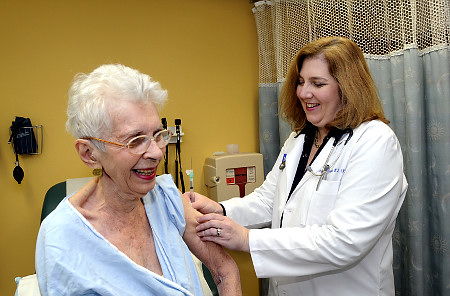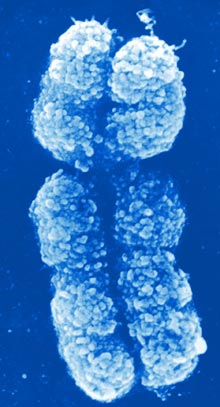 According to new research conducted at Oregon Health & Science University, yoga exercises may have the power to combat fibromyalgia — a medical disorder characterized by chronic widespread pain. The research is being published in the November 10 edition of the journal Pain and will appear online Thursday, Oct. 14.
According to new research conducted at Oregon Health & Science University, yoga exercises may have the power to combat fibromyalgia — a medical disorder characterized by chronic widespread pain. The research is being published in the November 10 edition of the journal Pain and will appear online Thursday, Oct. 14.
Fibromyalgia is a syndrome predominantly characterized by muscle pain and fatigue. It can cause sleep problems and psychological stress. Other symptoms often include morning stiffness, tingling or numbness in the extremities, headaches, memory problems, difficulty with swallowing, and bowel and bladder problems. Fibromyalgia affects between 11 million and 15 million Americans with 85-90% of the cases in women. The cause of fibromyalgia is currently unknown, but it is believed that genetics and physical/emotional stress may play a role.
“Previous research suggests that the most successful treatment for fibromyalgia involves a combination of medications, physical exercise and development of coping skills,” said James Carson, Ph.D., a clinical health psychologist and an assistant professor of anesthesiology and perioperative medicine in the OHSU School of Medicine. “Here, we specifically focused on yoga to determine whether it should be considered as a prescribed treatment and the extent to which it can be successful.”
In this study, researchers enrolled 53 female study subjects previously diagnosed with fibromyalgia. The women were randomly assigned to two research groups. The first group participated in an eight-week yoga program, which included gentle poses, meditation, breathing exercises and group discussions. The second group of women — the control group — received standard medication treatments for fibromyalgia.
Following completion of the yoga program, researchers assessed each study subject using questionnaires and physical tests. The results were then compared with testing results obtained prior to the yoga classes. The members of the control group underwent the same evaluations. In addition, each participant in the yoga group was urged to keep a daily diary to personally assess their condition throughout the entire program.
Comparison of the data for the two groups revealed that yoga appears to assist in combating a number of serious fibromyalgia symptoms, including pain, fatigue, stiffness, poor sleep, depression, poor memory, anxiety and poor balance. All of these improvements were shown to be not only statistically but also clinically significant, meaning the changes were large enough to have a practical impact on daily functioning. For example, pain was reduced in the yoga group by an average of 24 percent, fatigue by 30 percent and depression by 42 percent.
“One likely reason for the apparent success of this study therapy was the strong commitment shown by the study subjects. Attendance at the classes was good as was most participants’ willingness to practice yoga while at home,” added Carson. “Based on the results of this research, we strongly believe that further study of this potential therapy is warranted.”

 according to researchers at the Johns Hopkins Bloomberg School of Public Health. They examined published data from numerous adult and child vaccine trials and found that sex is a fundamental, but often overlooked predictor of vaccine response that could help predict the efficacy of combating infectious disease. The review is featured in the May 2010 issue of The Lancet Infectious Diseases.
according to researchers at the Johns Hopkins Bloomberg School of Public Health. They examined published data from numerous adult and child vaccine trials and found that sex is a fundamental, but often overlooked predictor of vaccine response that could help predict the efficacy of combating infectious disease. The review is featured in the May 2010 issue of The Lancet Infectious Diseases.


